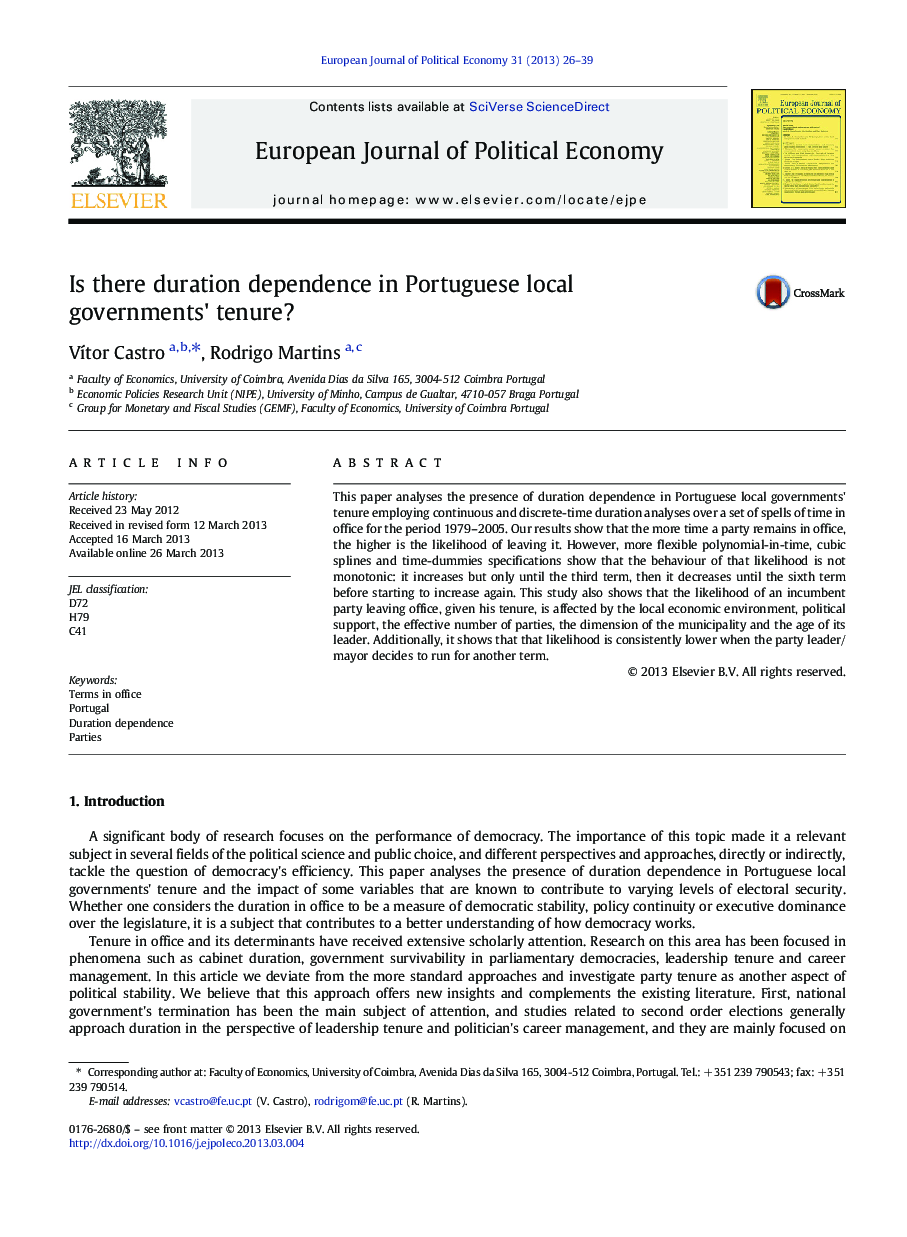| Article ID | Journal | Published Year | Pages | File Type |
|---|---|---|---|---|
| 5067944 | European Journal of Political Economy | 2013 | 14 Pages |
â¢Duration dependence in Portuguese local governments' tenure over the period 1979-2005.â¢Continuous and discrete-time duration models are used.â¢Results show that the more time a party remains in office, the higher is the likelihood of leaving it.â¢It increases until the third term, then decreases until the sixth before starting to increase again.â¢The likelihood is lower when the party leader/mayor decides to run for another term.
This paper analyses the presence of duration dependence in Portuguese local governments' tenure employing continuous and discrete-time duration analyses over a set of spells of time in office for the period 1979-2005. Our results show that the more time a party remains in office, the higher is the likelihood of leaving it. However, more flexible polynomial-in-time, cubic splines and time-dummies specifications show that the behaviour of that likelihood is not monotonic: it increases but only until the third term, then it decreases until the sixth term before starting to increase again. This study also shows that the likelihood of an incumbent party leaving office, given his tenure, is affected by the local economic environment, political support, the effective number of parties, the dimension of the municipality and the age of its leader. Additionally, it shows that that likelihood is consistently lower when the party leader/mayor decides to run for another term.
